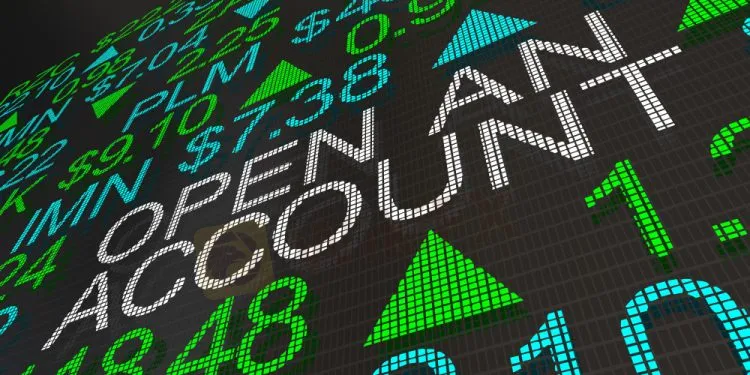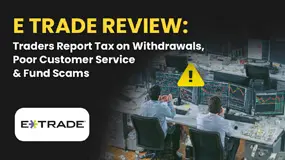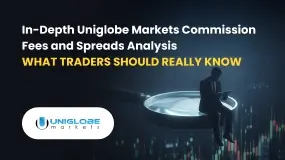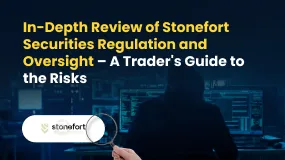简体中文
繁體中文
English
Pусский
日本語
ภาษาไทย
Tiếng Việt
Bahasa Indonesia
Español
हिन्दी
Filippiiniläinen
Français
Deutsch
Português
Türkçe
한국어
العربية
Types of Investment Held by A Brokerage Account
Abstract:You might have heard that many successful people have brokerage accounts. Some of them are even discussing their investment within that accounts.

Before you start investing you need to at least know the definition of the brokerage account.
Definition of brokerage accounts
A brokerage account is a type of taxable investment account. You can open a brokerage account with a stock brokerage firm.
After you have the account, you need to deposit some cash by writing a check, wiring money or linking it to a checking or savings account at your bank.
Once you have made the deposit, you can buy various types of investments securities.
However, you dont do that purchases by yourself, your brokerage will do that for you, instead. After every transaction, then, you need to pay the brokerage commission.
Types of investment held by a brokerage account
There are many types of investment you can buy in a brokerage account. Here are a few popular accounts according to The Balance.
Common Stocks
It represents ownership stakes in businesses.
Preferred Stocks
It gives you a higher claim to dividends or asset distribution than the common stockholder.
Bonds
It represents a loan made by an investor to a borrower (typically corporate or governmental).
Real Estate Investment Trusts (REITS)
It represents pools of real estate related assets including some specialty types.
Money Markets and Certificates of Deposits
It represents either ownership in pools of highly liquid mutual funds that hold cash and fixed income investments or loans you make to a bank in exchange for a fixed rate of interest.
Also read: How Do Stocks and Stock Market Work?
Mutual Funds
It is a pooled investment portfolio owned by many smaller investors who buy shares in the portfolio or trust that owns the portfolio.
Instead of trading throughout the day the way other assets do, buy and sell orders are put in at the end of the day all at once.
Exchange-Traded Funds (ETFs)
It is a mutual fund, including index funds, that trade like stocks.

Disclaimer:
The views in this article only represent the author's personal views, and do not constitute investment advice on this platform. This platform does not guarantee the accuracy, completeness and timeliness of the information in the article, and will not be liable for any loss caused by the use of or reliance on the information in the article.
Read more

E TRADE Review: Traders Report Tax on Withdrawals, Poor Customer Service & Fund Scams
Has your E Trade forex trading account been charged a withholding tax fee? Did your account get blocked because of multiple deposits? Did you have to constantly call the officials to unblock your account? Failed to open a premium savings account despite submitting multiple documents? Is fund transfer too much of a hassle at E Trade? Did you find the E Trade customer support service not helpful? In this E Trade review article, we have shared certain complaints. Take a look!

mBank Exposed: Top Reasons Why Customers are Giving Thumbs Down to This Bank
Do you find mBank services too slow or unresponsive? Do you find your account getting blocked? Failing to access your account online due to several systemic glitches? Can’t perform the transactions on the mBank app? Do you also witness inappropriate stop-level trade execution by the financial services provider? You are not alone! Frustrated by these unfortunate circumstances, many of its clients have shared negative mBank reviews online. In this article, we have shared some of the reviews. Read on!

In-Depth Uniglobe Markets Commission Fees and Spreads Analysis – What Traders Should Really Know
For experienced traders, the cost of execution is a critical factor in broker selection. Low spreads, fair commissions, and transparent pricing can be the difference between a profitable and a losing strategy over the long term. This has led many to scrutinize the offerings of brokers like Uniglobe Markets, which presents a tiered account structure promising competitive conditions. However, a professional evaluation demands more than a surface-level look at marketing claims. It requires a deep, data-driven analysis of the real trading costs, set against the backdrop of the broker's operational integrity and safety. This comprehensive Uniglobe Markets commission fees and spreads analysis will deconstruct the broker's pricing model, examining its account types, typical spreads, commission policies, and potential ancillary costs. Using data primarily sourced from the global broker inquiry platform WikiFX, we will provide a clear-eyed view of the Uniglobe Markets spreads commissions prici

In-Depth Review of Stonefort Securities Regulation and Oversight – A Trader's Guide to the Risks
For experienced traders, the process of selecting a new broker transcends a simple comparison of spreads and leverage. It is a meticulous due diligence exercise where the integrity of the broker's regulatory framework is paramount. Stonefort Securities, a relatively new entrant in the crowded brokerage space, presents a complex and often contradictory profile. On one hand, it boasts a modern MT5 platform and a stream of positive user testimonials. On the other hand, it is shadowed by severe regulatory warnings that question the very foundation of its operations. This in-depth review focuses on the core issue for any long-term trader: Stonefort Securities regulation and oversight. We will dissect the broker's corporate structure, scrutinize its licensing claims, and analyze what the data implies for trader protection and fund security. For traders evaluating whether Stonefort Securities is a trustworthy partner, understanding these details is not just important—it is essential.
WikiFX Broker
Latest News
WikiFX's New Evaluation of ATM Capital LTD: Does its License Protect the Arab Investor?
How a Fake Moomoo Ad Led to the “New Dream Voyage 5” Scam
Is Axi Legit? A Data-Driven Analysis of Its Regulatory Standing and Trader Feedback
Trive Investigation: High Score, Hidden Risk - The Profit Paradox
In-Depth Uniglobe Markets Commission Fees and Spreads Analysis – What Traders Should Really Know
FXPesa Review: Are Traders Facing High Slippage, Fund Losses & Withdrawal Denials?
Bessent believes there won't be a recession in 2026 but says some sectors are challenged
mBank Exposed: Top Reasons Why Customers are Giving Thumbs Down to This Bank
Young Singaporean Trader Grew USD 52 into a USD 107,700 Portfolio
Is GGCC Legit? A Data-Driven Analysis for Experienced Traders
Currency Calculator



